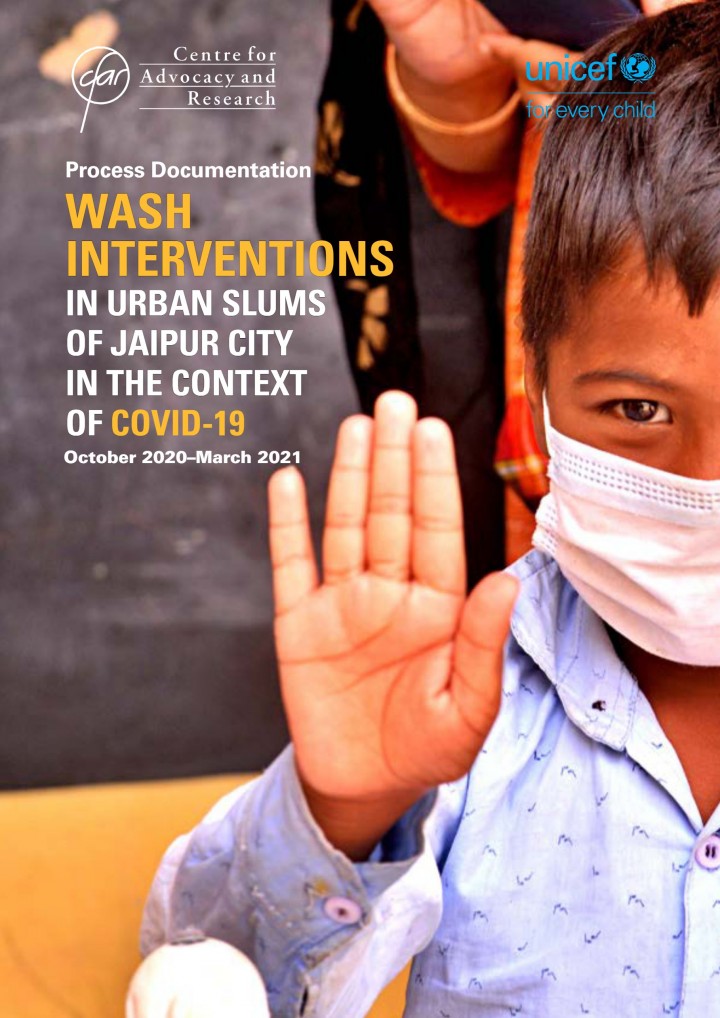
Published in: 2021
Pages: 52
Publisher:
UNICEF and Centre for Advocacy and Research
Author:
Khastagir, S.
Uploaded by:
India Regional Chapter Coordinator
1389 Views
84 Downloads
IN 2020, UNICEF initiated WASH interventions in the urban slums of Jaipur city in partnership with the Centre for Advocacy and Research (CFAR). This was done in the context of the 2019 coronavirus (COVID-19) pandemic with a threefold objective. COVID-19 has highlighted the inter-linkages between health and hygiene and the vulnerability of the poor and the marginalized. As India battled with the second, and deadlier, wave of the pandemic, the virus once again reinforced the need to use an equity focused lens to improve hygiene and sanitation facilities, access to healthcare and vaccination. UNF, at the request of World Health Organisation established the COVID-19 Solidarity Response Fund in March 2020.
This report describes the partnership process, findings and way forward. It begins with an overview of the operational context of WASH in Jaipur (urban). It then describes the approach, timeline and journey of the partnership and the key lessons in the process. The document then discusses WASH in each of the targeted facilities separately- health centres, schools, Anganwadi centres (AWCs) and Community Sanitary Complexes (CSCs). For each facility, it describes the findings from the gap assessment conducted and the systems strengthening inputs.
Bibliographic information
Khastagir, S. (2021). WASH Interventions in Urban Slums of Jaipur City in the Context COVID-19. UNICEF and Centre for Advocacy and Research
Filter tags
East Asia & Pacific English















